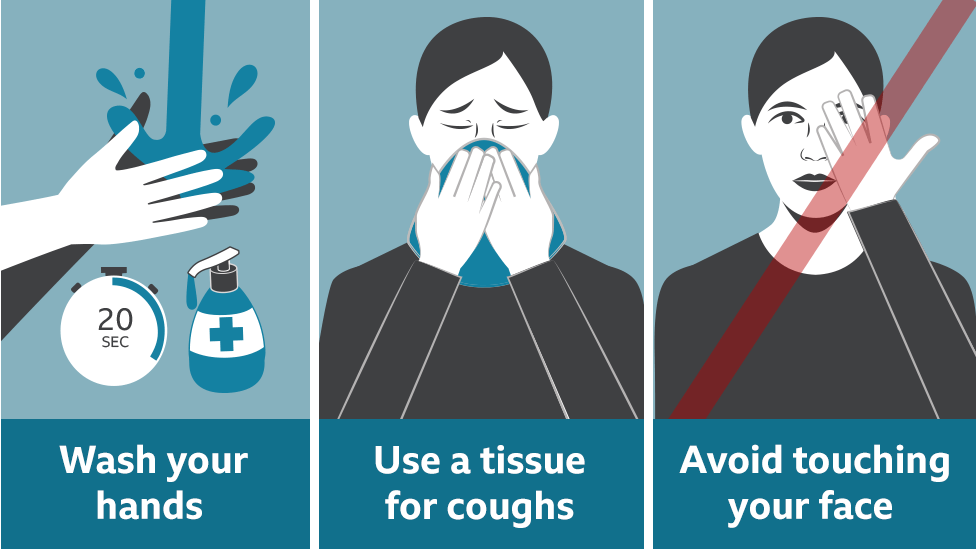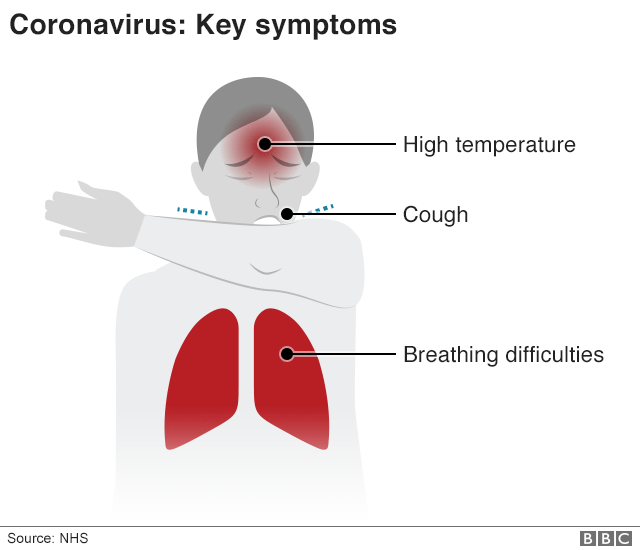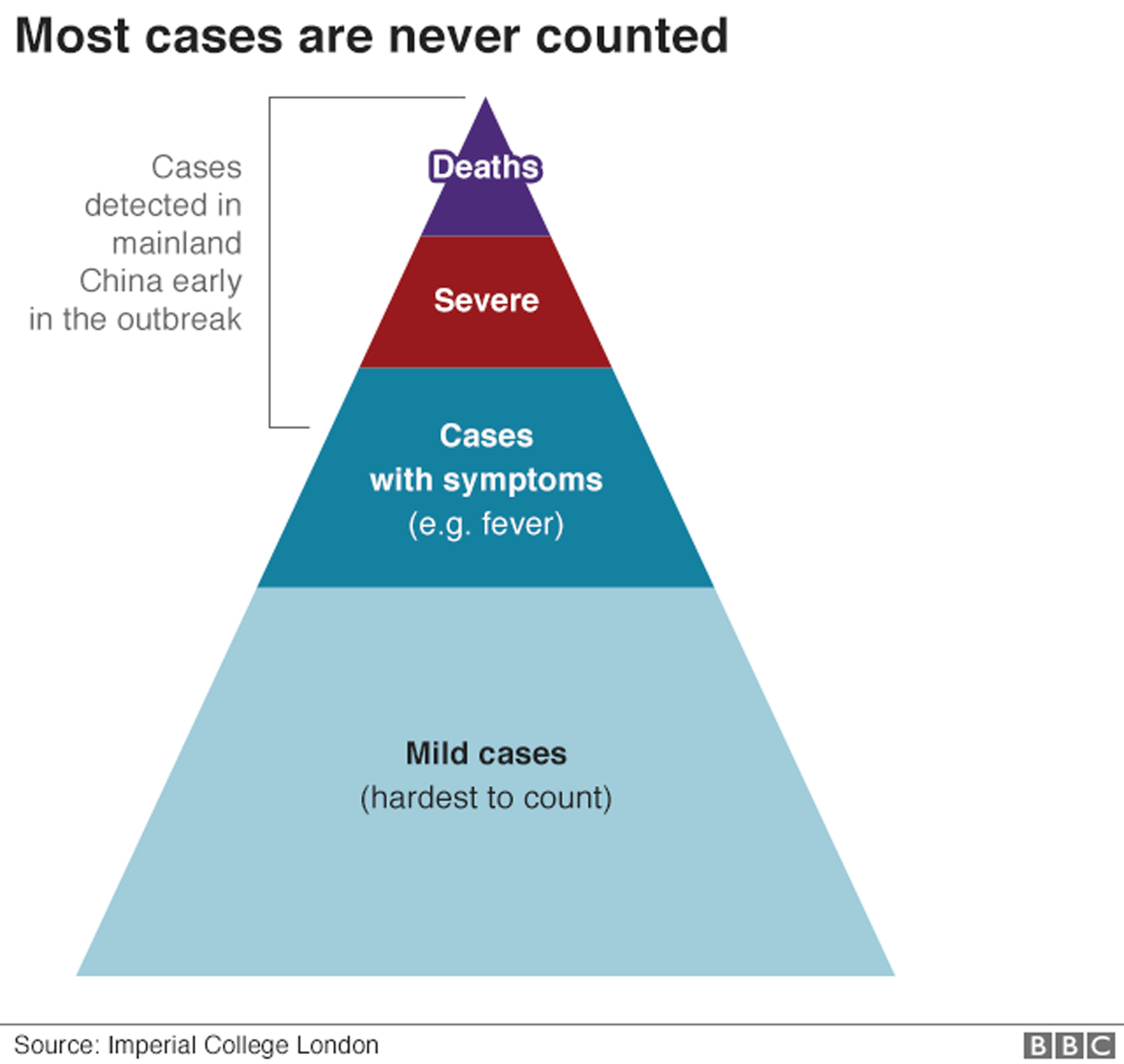Coronavirus Symptoms: What Are They And How Do I Protect Myself?

Coronavirus has claimed more than 156,000 lives and infected nearly 2.3 million people around the world.
What Are The Coronavirus Symptoms?
Coronavirus infects the lungs. The two main symptoms are a fever or a dry cough, which can sometimes lead to breathing problems.
The cough to look out for is a new, continuous cough. This means coughing a lot for more than an hour, or having three or more coughing episodes in 24 hours. If you usually have a cough, it may be worse than usual.
You have a fever if your temperature is above 37.8C. This can make you feel warm, cold or shivery.
A sore throat, headache and diarrhoea have also been reported and a loss of smell and taste may also be a symptom.
It takes five days on average to start showing the symptoms, but some people will get them much later. The World Health Organization (WHO) says the incubation period lasts up to 14 days.
When Do People Need to Go to Hospital?
The majority of people with coronavirus will recover after rest and pain relief (such as paracetamol).
The main reason people need hospital treatment is difficulty breathing.
Doctors may scan the lungs to see how badly they are affected and give support, such as oxygen or ventilation, if needed.
However, people should not go to A&E if they are concerned. In the UK, the NHS 111 website will guide you through what to do.
If you are so breathless that you are unable to speak more than a few words you will be told to call 999, as this is a medical emergency.
If you become so ill that you've stopped doing all of your usual daily activities then it will advise speaking to a nurse by dialling NHS 111.
What Happens in Intensive Care?
Intensive care units (ICUs) are specialist wards for people who are very ill.
Coronavirus patients will get oxygen support, which can involve using a facemask, or a tube in the nose.
The most invasive way - for the most seriously ill patients - is ventilation where air, with increased levels of oxygen, is pushed into the lungs via a tube in the mouth, nose or through a small cut in the throat.


What Should I do if I Have Mild Symptoms?
Patients with mild symptoms should self-isolate at home for at least seven days.
People are advised not to ring NHS 111 to report their symptoms unless they are worried. They should also not go to their GP, or A&E.
Details for Scotland are to check NHS inform, then ring your GP in office hours, or 111 out-of-hours. In Wales call NHS 111, and in Northern Ireland, call your GP.
If you have come into contact with somebody who may be infected, you may be told to self-isolate.
The World Health Organization has also issued advice for the public.


How Deadly is Coronavirus?
The proportion dying from the disease appears low (between 1% and 2%) - but the figures are unreliable.
Thousands are being treated but may go on to die - so the death rate could be higher. But it may also be lower if lots of mild cases are unreported.
A World Health Organization (WHO) examination of data from 56,000 patients suggests:
6% become critically ill - lung failure, septic shock, organ failure and risk of death 14% develop severe symptoms - difficulty breathing and shortness of breath 80% develop mild symptoms - fever and cough and some may have pneumonia


Older people, and those with pre-existing medical conditions (such as asthma, diabetes, heart disease, high blood pressure), are more likely to become severely ill. Men are at slightly higher risk of dying from the virus than women.









0 comments:
Post a Comment